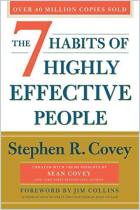
Read or listen offline
Amazon Kindle
auto-generated audio
1×
Log in to listen to the audio summary.
auto-generated audio
Recommendation
You may assume that ideas rise to popularity through countless human interactions. If so, you’ve fallen for the “viral myth.” In his best-selling book Hit Makers and this shrewd, useful lecture with the same title, Atlantic editor Derek Thompson explains why people “equate volume with veracity” and how broadcasters can make it seem that a viral idea has spread socially. getAbstract widely recommends this modern-day guide to making or understanding a “hit.”
Summary
About the Speaker
Atlantic senior editor Derek Thompson writes chiefly about economics and the media.
By the same author
Learners who read this summary also read
Book
Book
Book





















Comment on this summary